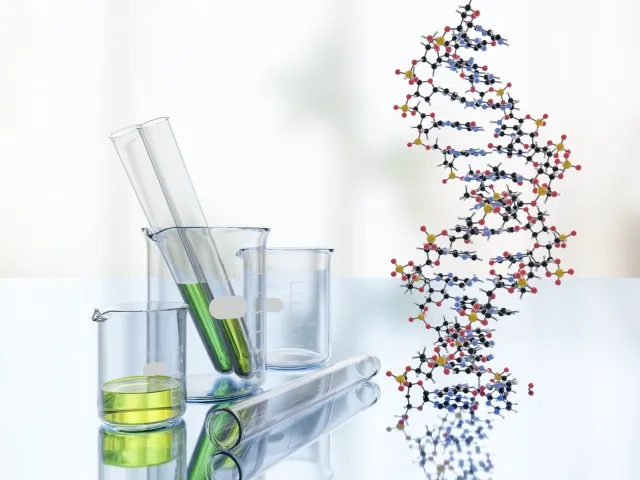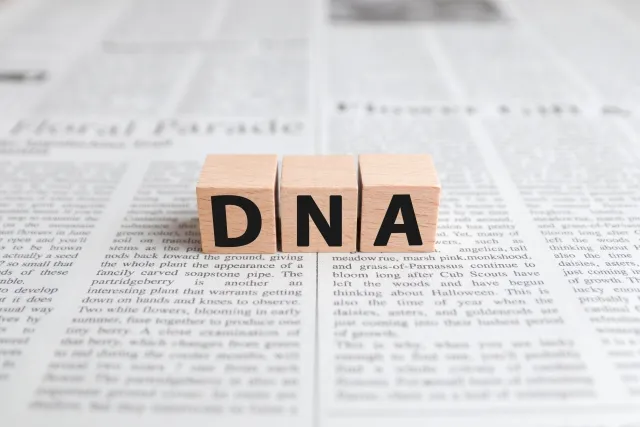Why messenger RNA isn't used in forensics
Summary of this article
Messenger RNA (mRNA) is an important molecule responsible for transmitting genetic information within the cell, but it is not used for the primary purpose of DNA identification or genetic analysis. This is because mRNA is unstable and more difficult to store than DNA. Below is a detailed explanation of why mRNA is not used for DNA analysis and the characteristics of mRNA.

1. mRNA Instability
- mRNA is very unstable and easily decomposed compared to DNA. Since mRNA plays a role in temporarily transmitting genetic information within the body, it is designed to decompose quickly. In particular, in the environment, it is decomposed very quickly by RNase (RNA degrading enzyme) , making it difficult to store for long periods of time, and is not suitable for long-term information retention like DNA.
- For use in identification, it is necessary to store it for a long time and make it easy to analyze, but mRNA is at a major disadvantage in this respect.
2. mRNA is expressed transiently in specific cells and tissues
- mRNA is expressed only temporarily and in certain cells or tissues , so it is not present in all cells. mRNA is copied from DNA and exists only temporarily to synthesize a specific protein. Therefore, different mRNAs are made at different times and in different circumstances.
- In contrast, DNA contains the same genetic information in all cells , so the same information can be obtained from every cell, and so DNA is used for identification.
3. mRNA only reflects a part of the gene
- mRNA only reflects a portion of the total information in DNA. Specifically, mRNA is the transcription product of a specific gene and contains only the information necessary for protein synthesis. Therefore, mRNA does not contain all the genetic information necessary for personal identification.
- On the other hand, DNA contains all genetic information and provides a complete set of information needed for personal identification and genealogy.
4. Specific Uses of mRNA
Although mRNA is not used for DNA testing, it is useful in certain areas: for example, mRNA is used in medical diagnostics and gene expression analysis , which allows researchers to determine which genes cells and tissues are activating and which proteins are being synthesized.
Cancer diagnosis
- By analyzing the mRNA expression profile, it is possible to identify which genes are abnormally expressed by cancer cells and diagnose the type and progression of cancer.
b. Gene expression studies
- mRNA can be used to determine which genes are active in specific cells and tissues, providing insight into many biological processes, including developmental biology, immune responses, and neuroscience.
C. Vaccine development
- mRNA vaccines (e.g., COVID-19 mRNA vaccines) can utilize mRNA to synthesize specific proteins to trigger an immune response, which is a successful example of the medical application of mRNA.

5. Why is it used in DNA testing?
In DNA testing, DNA is stable and can be stored for long periods of time , so it is used for personal identification, parentage testing, and forensic analysis. In addition, because DNA contains all genetic information, anyone can obtain the same information from any cell, and reliable identification is possible by analyzing the sequences that differ for each individual.
a. Parentage testing and personal identification
- By analyzing specific regions of DNA (such as short sequence repeats, SNPs), it is possible to identify individuals and to prove parent-child relationships and in criminal investigations.
B. Forensic science
- Because DNA remains relatively stable in the environment, it can be extracted from blood, body fluids, hair, bones, etc. after death and used to identify individuals.
Conclusion
Messenger RNA (mRNA) is not used for DNA testing . This is because mRNA is unstable, easily degraded, and is only expressed at certain times and in certain tissues, so it does not contain all the information needed for testing. DNA, which is stable and contains the same information in all cells, is used for testing and personal identification.
While mRNA plays an important role in certain medical diagnostics and gene expression analysis, DNA is more suitable for personal identification purposes such as testing.
